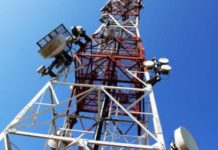.Asks NCC, CBN to Convene Reconciliation Meeting
By Aaron Ukodie
The Association of Licensed Telecom Operators of Nigeria (ALTON) has explained that the controversy arising from the USSD charges recently communicated to customers by the telecos arose out of the banks’ bid to exploit the service for commercial gain.
The association said in a statement to the press and in a letter to the Body of Banks Chief Executive Officers (BOBCEOs) that the USSD controversy came as a result of the banks demand to the telecos that the service fee which the banks had borne on behalf of their customers be billed from the end-user point.
The ALTON statement was signed by its president, Gbenga Adebayo, and director of operations, Gbolahan Awonuga.
The banks were expected to bear the USSD cost which was determined by the Nigerian Communication Commission (NCC) on behalf of their customers, recovering the cost from several services charges ranging from N10 to N50 they deducted from customers’ bank accounts.
What became wrong, according to the association, was when the banks saw the use of the USSD services as a means to bill their customers much more above what the telcos were charging the banks for the service.
ALTON said it had told the banks that their proposal to it to implement end-user billing, would result in consumer harm as customers would be exposed to double billing since service provisioning is the responsibility of the banks and its members have no control over that.
The Association had in a letter replying to the Body of Banks’ Chief Executive Officers (BOBCEOs) said USSD charges which it had demanded from the banks was not unusual but a business and operational necessity because its resources were being used by the banks to provide services.
ALTON noted that while banks charge service fees of between N10 to N50 depending on the nature of the transaction, a telecom operator charges N4.5 per USSD session, which implies that an operator’s USSD tariff represents only 40% of a customer’s service fees in a worst-case scenario and 0.08% in a best-case scenario when assessed against N10 and N50 service fees respectively.
ALTON noted that banking sector was increasingly relying on the USSD Infrastructure as a primary channel for serving the banked population instead of the unbanked as evidenced by multi-media advertisements being championed by the banks to drive usage.
According to the association the upsurge in USSD transactions since 2017 running into trillions of transactions without a commensurate increase in the number of banked customers corroborates its position.
“The reality is that banks are strategically riding on the technology infrastructure provided by our members to optimize operations and save operational costs… with the huge savings accruable to the banks for use of the USSD infrastructure, it should be a matter of public concern that customers are being billed for the use of a service channel”, ALTON noted.
ALTON said the USSD channel, which should be a service channel dedicated to promoting financial inclusion, has been converted into a revenue line by the banks.
It noted that the biggest beneficiaries in the USSD value chain were the banks and that the allegation of destroying the financial inclusion strides by its members as alleged by the BOBCEOs are unfounded.
In a September 16, 2019 letter signed by 13 banks, the banks had asked the telecos to directly bill the bank customers for services which the banks were rendering its customers, as they were unwilling to share revenue already arising from customer’s services charges with the telcos. In the letter they had also accused the telcos of anti-competitive practices.
The bankers alleged that:
- the demand to banks to subscribe to corporate-level billing compels them to pay N4.5 per 20secs USSD session; amounting to ~450% increase in tariff;
- the USSD cost will destroy the financial inclusion strides made by banks where 20m more citizens have been included via services running on USSD;
- the USSD cost would render the laudable financial inclusion initiatives of the Federal Government of Nigeria unsustainable which would impede development and economic growth;
- Reverse corporate billing gives no visibility on actual sessions used, forces banks to pay for failed sessions and leaves banks exposed to spurious USSD usage that will increase the cost;
- It is proposing the implementation of end-user billing for bank customers.
But in ALTON’s response the telecom companies argued that the BOBCEOs claims that the telcos USSD charges which was approved by the Nigerian Communication Commission (NCC) did not in any way adversely affect the federal government’s national policies including the financial inclusion objectives.
ALTON argued that on the contrary, telecom companies as responsible Nigerian corporate entities make significant socio-economic contributions to the country and have been an enabler to every single sector of the economy including the financial sector.
It noted that it would be impossible to connect Automated Teller Machines (ATMs) and Point of Sale Terminals (POS Terminals) across the length and breadth of Nigeria without telcos dedication and support and that the cashless policy drive and the instant payment solution of the financial sector would not have been possible without its members’ support. It further argues that ATLON was committed to materially improve financial inclusion rates and to deliver access to financial services to 90 million customers over 30 months if its members are allowed to provide financial services directly to end-users.
ALTON also argues that the allegation of ~450% increase in USSD cost-per sessionof 20 seconds by BOBCEOs was flawed and unproven, noting that the revised USSD rates proposed by its members are based on the conclusion of a cost study by the Nigerian Communications Commission (NCC) which was communicated in its ‘Determination of USSD Pricing 2019’, which came into effect on 1st September 2019.
In arriving at the USSD cost, the NCC, ALTON said relied on a cost-based study conducted by PWC, a reputable international accounting firm, which had earlier in 2018 determined the provisioning cost for USSD services based on the network costs of an efficient operator and that the NCC’s intervention in the USSD market is not novel, as core operators’ services such as Voice, SMS, and Data are subject to NCC’s pricing principles as determined from time to time.
ALTON said the BOBCEOS’ apparently overlooked the fact that the NCC’s Determination had varying impact on its members as some members had to review downwards their USSD prices while others, whose USSD prices fell below the floor, were compelled to review upward their prices.
The telecom association also argues that the BOBCEOs allegation of destroying financial inclusion strides and impeding development and economic growth was baseless because the position advanced by BOBCEOS’ does not reflect the current cost structure and the realities of the USSD infrastructure’s usage.
Justification for Telcos USSD Charges
ALON noted that its members are justified to ask the banks to pay USSD charges as the channel has evolved over time from a telco exclusive channel used for only telco services such as balance inquiry and recharges, to a channel being utilized for the deployment of financial, insurance, agricultural and government services.
The USSD channel delivered using the Standalone Dedicated Control Channel (SDCCH) which is also used for call set-up, SMS set-up, and delivery and like other telco services such as SMS, voice and data, network resources are utilized in the provisions of USSD services and as such there are significant costs associated with deploying and maintaining the service.
The Association said the Banks while identifying the convenience of delivering services to its customers over the USSD channel applied to the Nigerian Communications Commission for USSD codes to deliver these services, which resulted to the issuance of USSD Short codes to the Banks and as is expected, they became fully responsible for the charges associated with delivering services to their customer through these short codes.
ALTON said recently, the USSD channel has become a preferred service channel for the financial sector because of the cost efficiencies derived from the adoption of the channel. Today, USSD codes such as *737#, *906# have become leading brands because Banks have intensified the promotion of this channel to mostly the banked base towards the overall improvement of efficiencies with less focus on other service channels such as brick and mortar centers.
ALTON said with increase in USSD traffic driven by financial services which currently constitutes approximately 90% of the entire USSD traffic, telcos have continued to incur additional costs to provision additional SDCCH channels to mitigate against the negative impact on the quality of service. It is therefore factually incorrect when allusions are made that USSD costs incurred by our members are sunk costs which are not recoverable
ALTON explained that due to the adoption of financial services on USSD, the banks partnered with its members to zero-rate the USSD access to end-users, while the banks bore the cost for the provision of service.
Based on this arrangement, ALTON said the banks took on the responsibility of billing customers and paid its members for use of the USSD infrastructure from the service fees deducted from the customer’s bank account but that the service fees charged by the banks, were however far in excess of the costs remitted to its members by the Banks for providing the USSD platform.
ALTON noted that while banks specifically demanded that all its members implement the end-user billing system, the banks did not give assurances that such service fees charged to customers’ bank accounts for access to bank services through the USSD channel will be discontinued post implementation of end-user billing by our members.
It says, the removal of these service fees by the banks would have meant that if bank customers were charged only the USSD costs communicated by its members per USSD session, bank customers will be paying far less than what they are currently being charged by the banks which in some instances are as high as N50. Additionally the banks and telco’s will be applauded for collaborating towards the financial inclusion objectives of the Federal Government.












